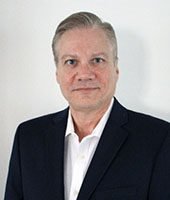Wiring the World Together: IPC and WHMA Unveil Global Wire Harness Competitions and Championship
IPC, in collaboration with the Wiring Harness Manufacturer's Association (WHMA), has organized the first-ever World Wire Harness Competitions and Championship. Regional country competitions will take place between March and December 2025 and final championship will be held at IPC’s Integrated Electronics Manufacturing & Interconnections (IEMI) event scheduled January 29–30, 2026, in Bangalore, India. The global initiative promotes industry’s best practices and strengthens the skilled workforce behind cable and wire harness assembly.
Country wire harness competitions will take place in China (March 27-28), Sri Lanka (April 4), Australia (May 7), UAE (May 8), Vietnam (May 16 and September 10-12), Malaysia (July 23-25), Saudi Arabia (July), Thailand (August 20-22), Mexico (August), Philippines (October), and Egypt (November).
The global competition will bring together top talent from across the world to compete, collaborate, and showcase the highest standards of craftsmanship in wire harness assembly—an essential function in modern electronics manufacturing.
The competition will follow IPC/WHMA-A-620 Revision E, the industry benchmark for quality and reliability in the cable and wire harness industry. Participants will be evaluated on a wide range of competencies, including wire preparation, crimping, soldering, BOM verification, and final assembly workmanship.
The World Wire Harness Competitions and Championship come at a time when the global wire harness market is poised for substantial growth. With a projected compound annual growth rate (CAGR) of 7.2 percent between 2024 and 2034, the sector is expanding across automotive, aerospace, defense, and industrial applications.
“The wire harness competitions and subsequent championship are a global celebration of craftsmanship, collaboration, and excellence—bringing the best of each region together to inspire and celebrate the beauty inside of our craft and the people,” said Parker Garrett, EMSCO, chairman, WHMA.
Positioned as a centerpiece of IEMI 2026, the championship is expected to attract worldwide attention from leading manufacturers, industry stakeholders, and innovation-driven enterprises. For more information on regional rounds, sponsorship opportunities, or participation guidelines, visit: www.ipc.org/ipc-india-Wireharness-2025.

